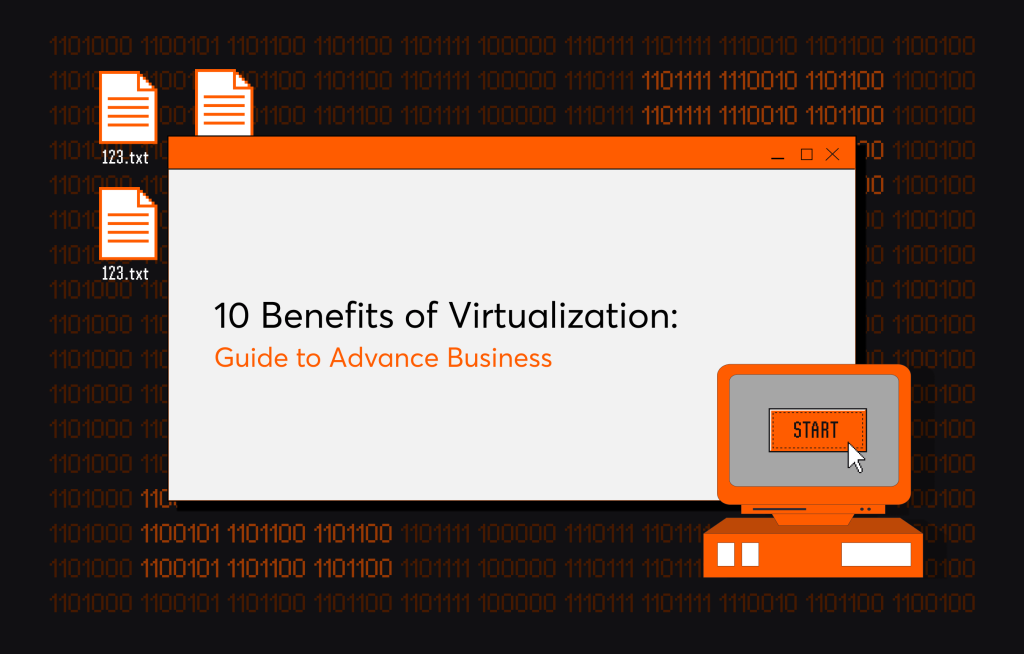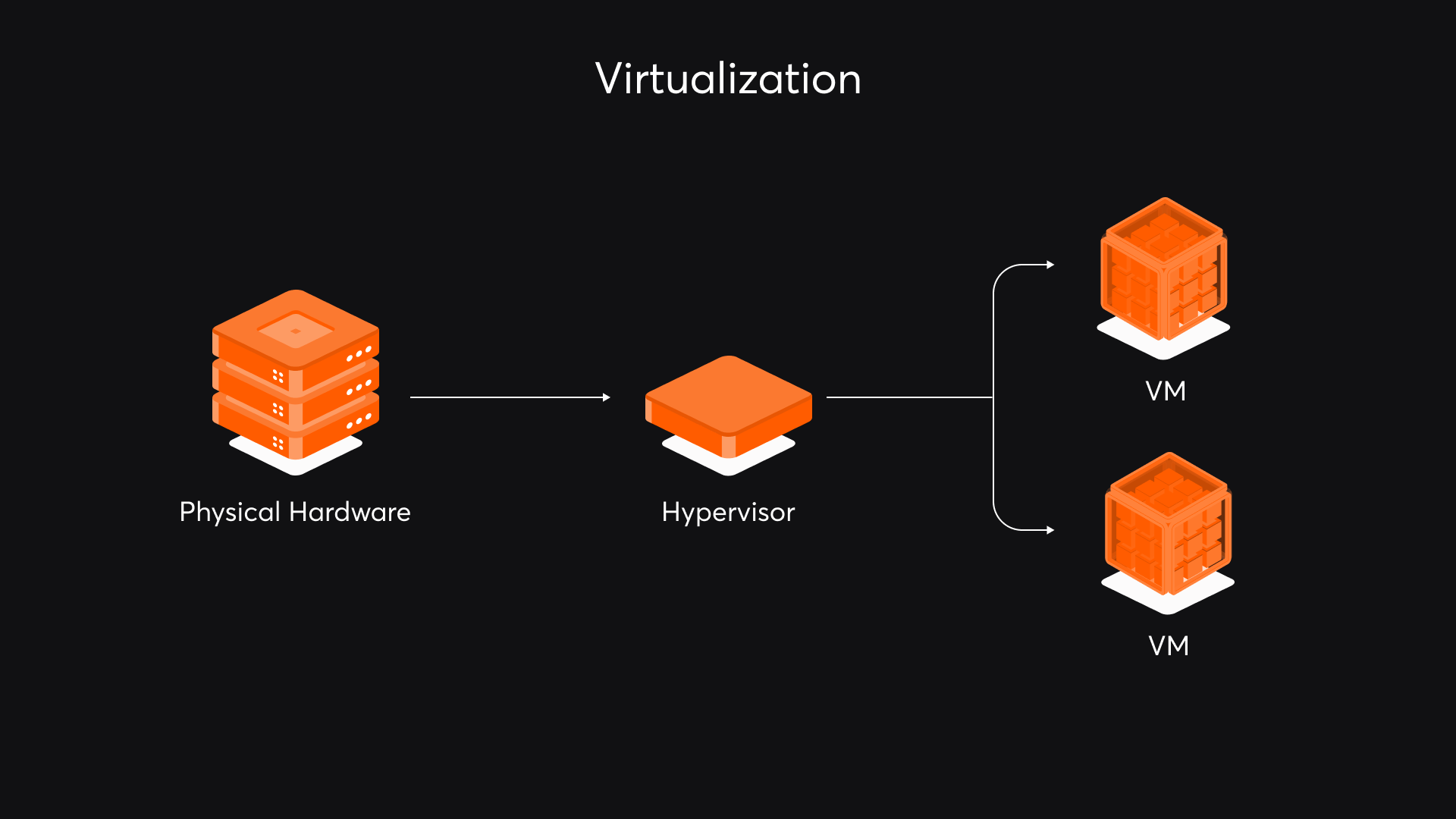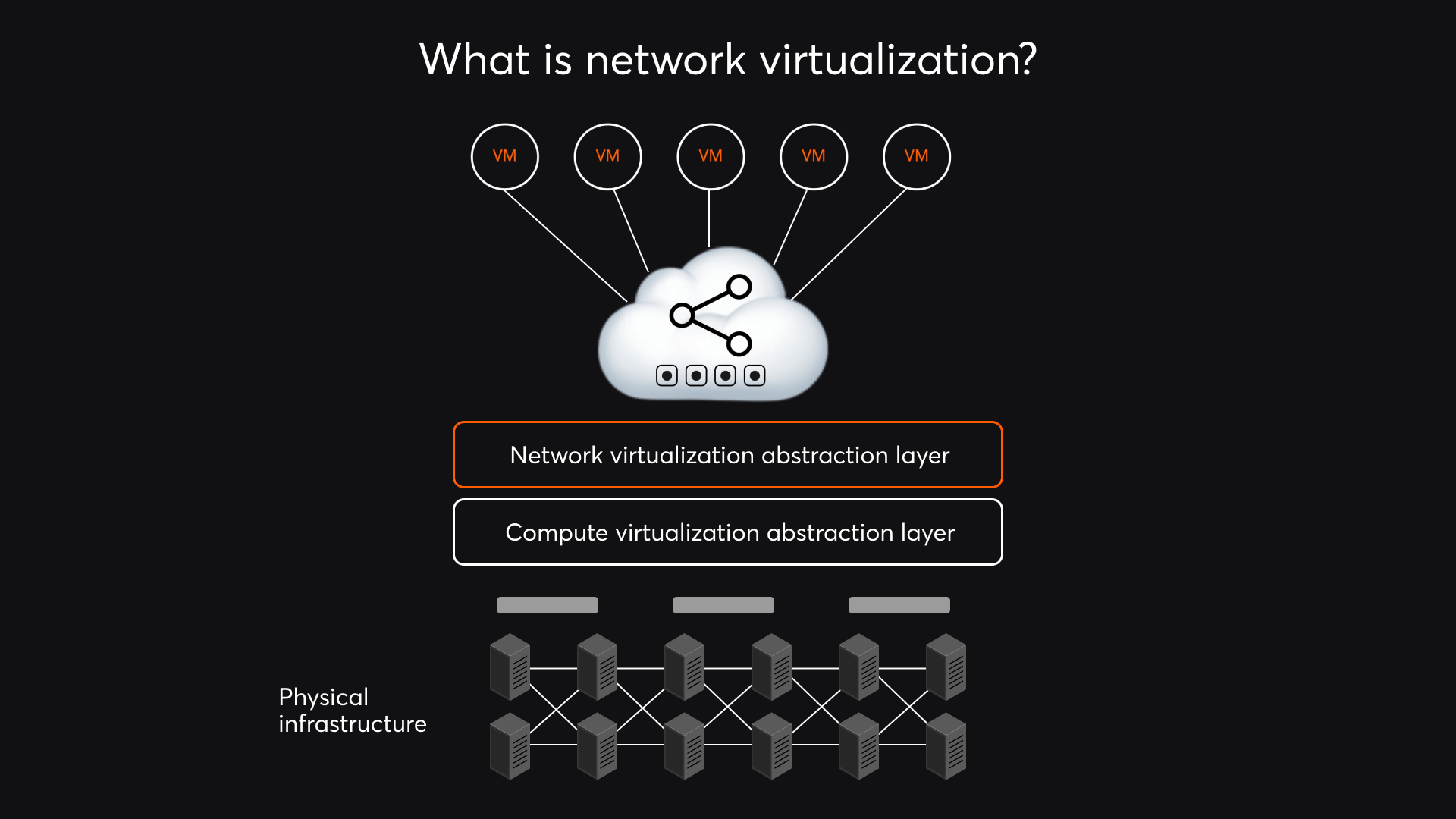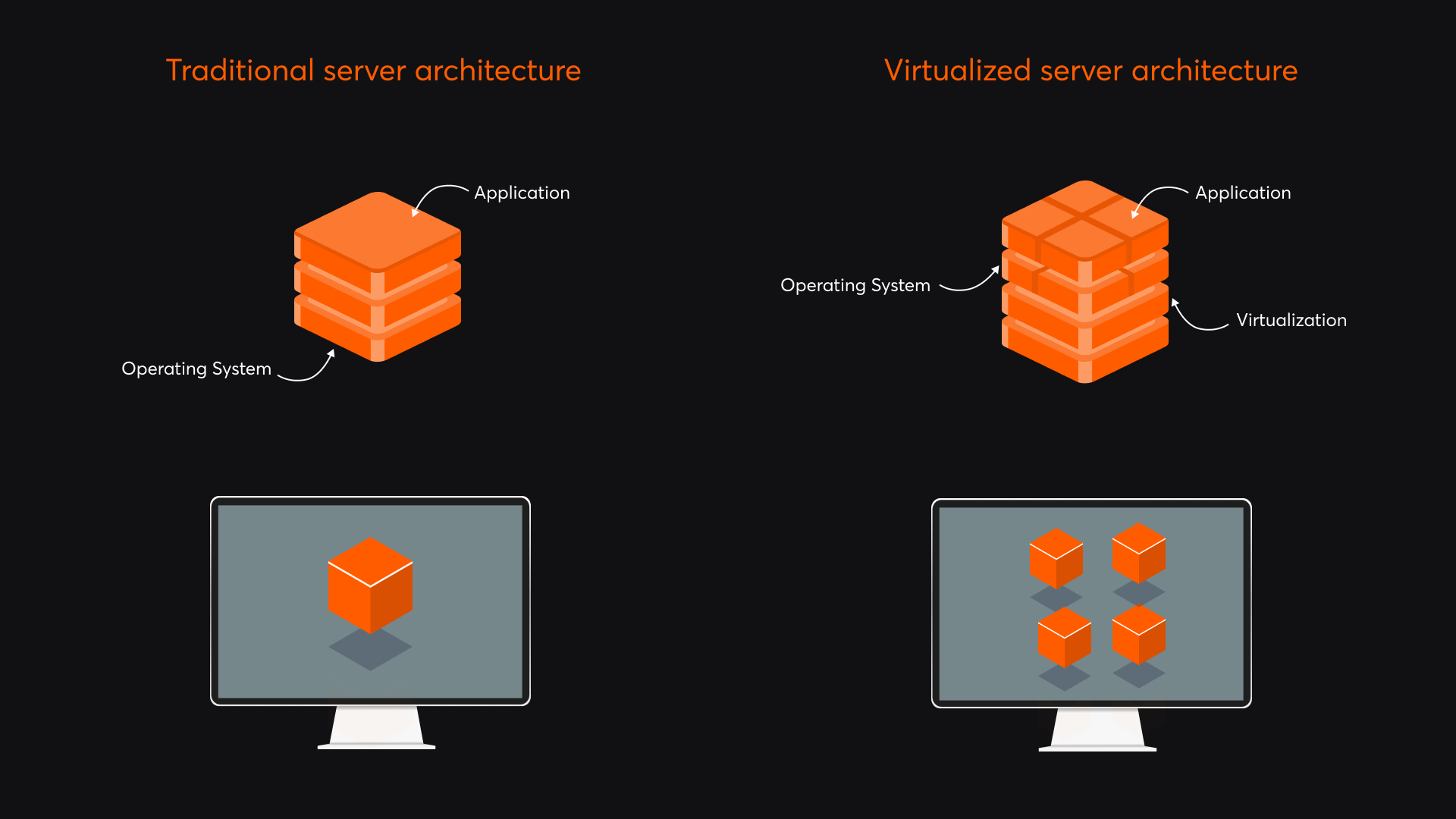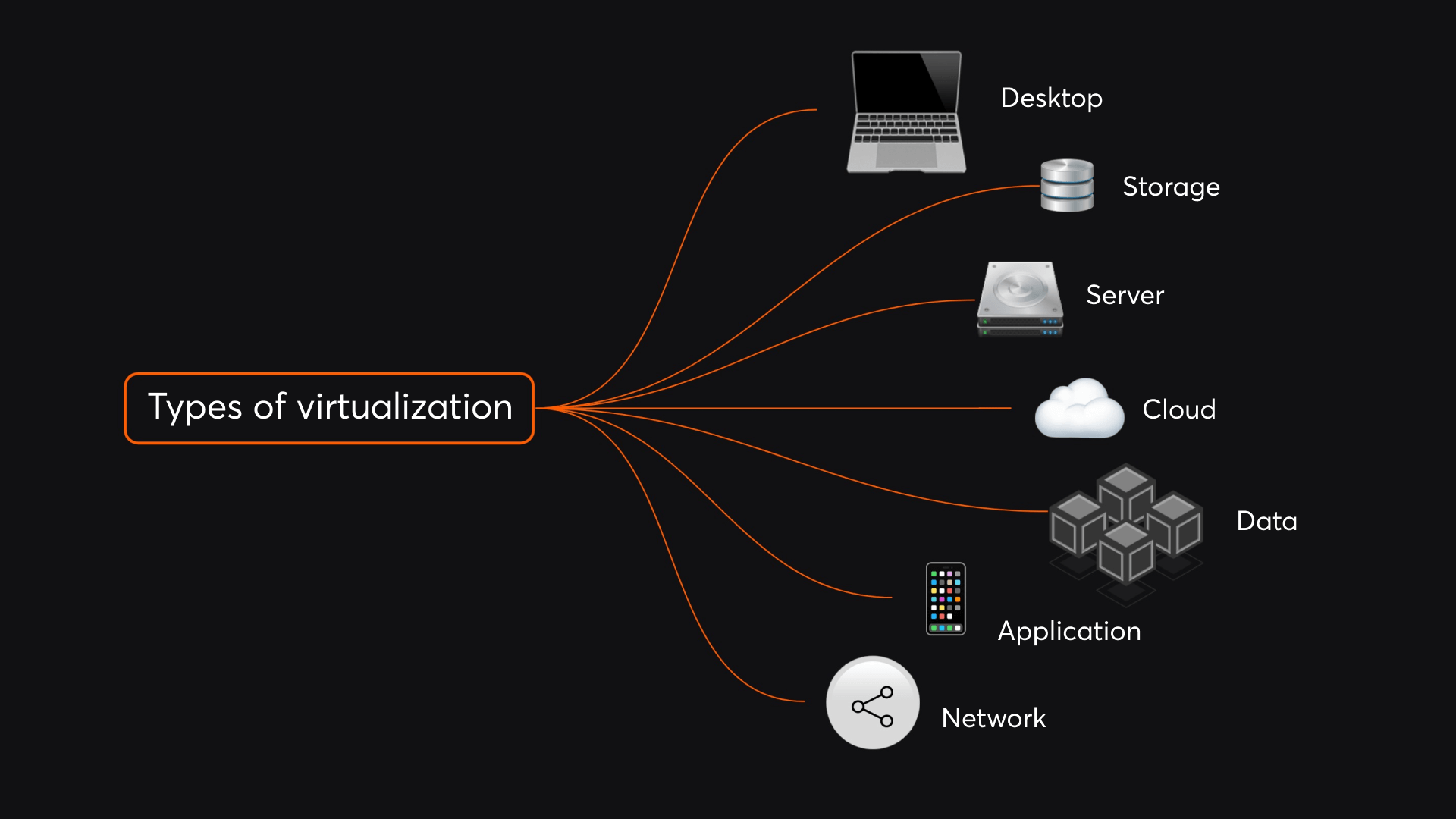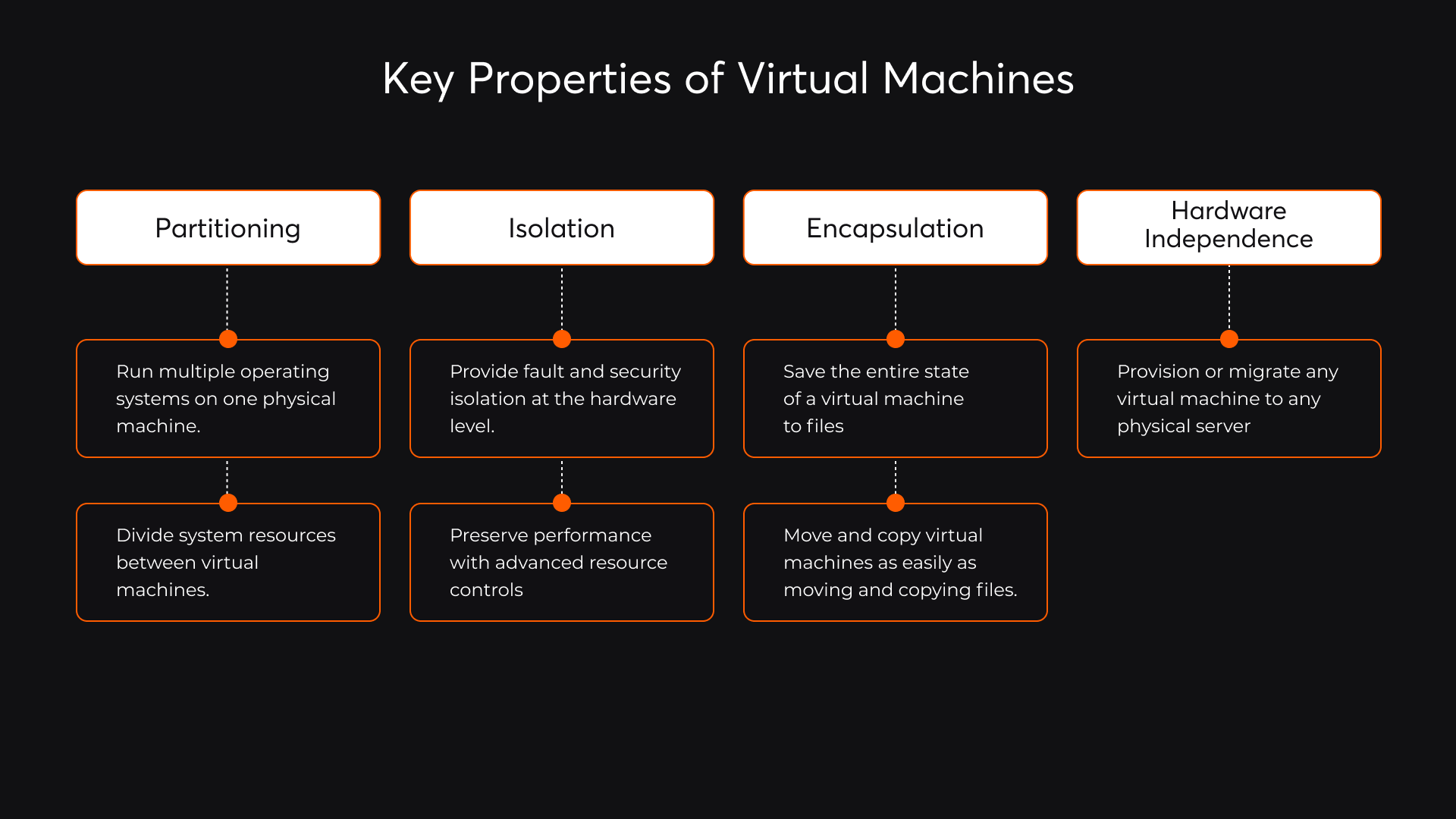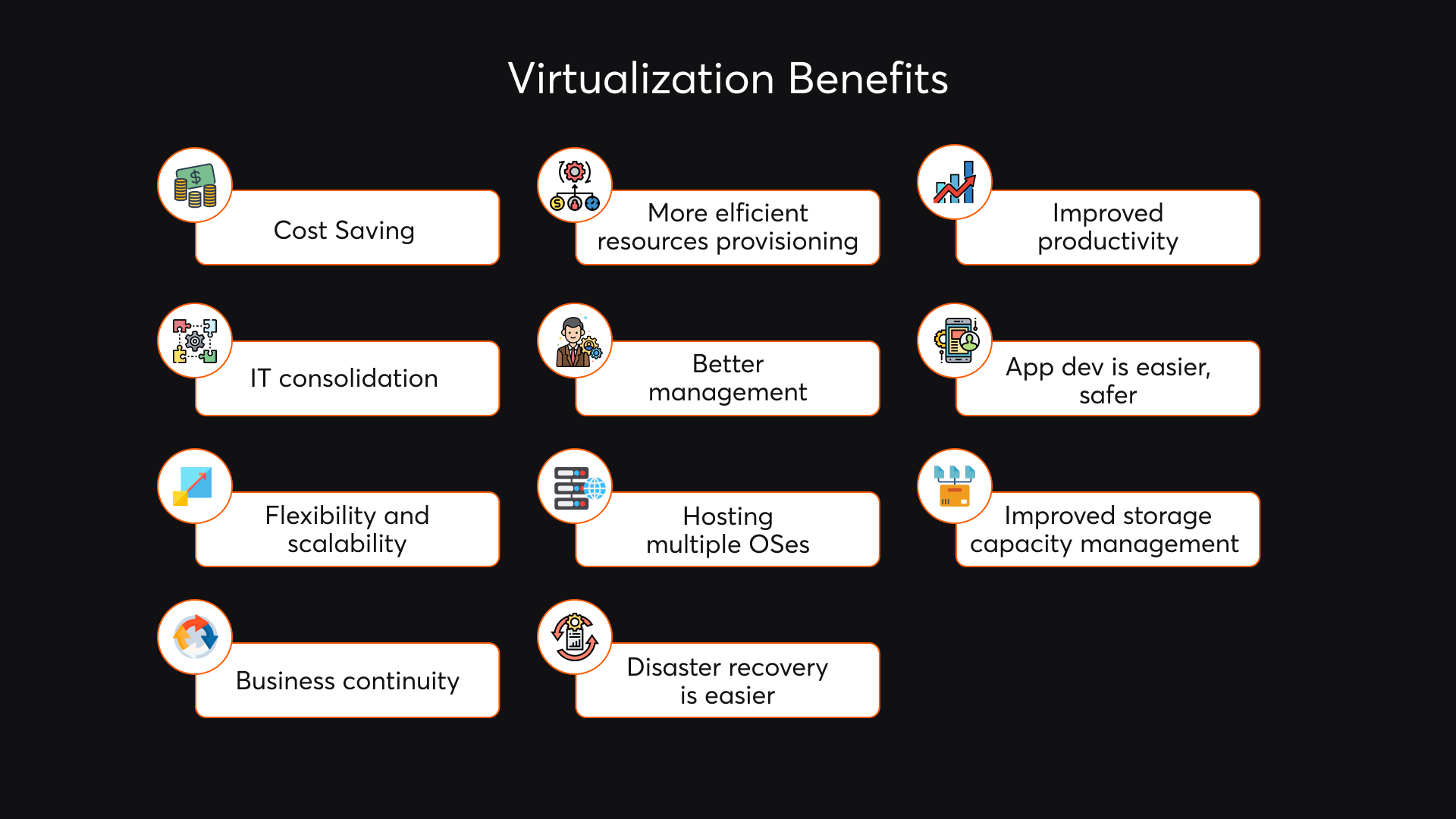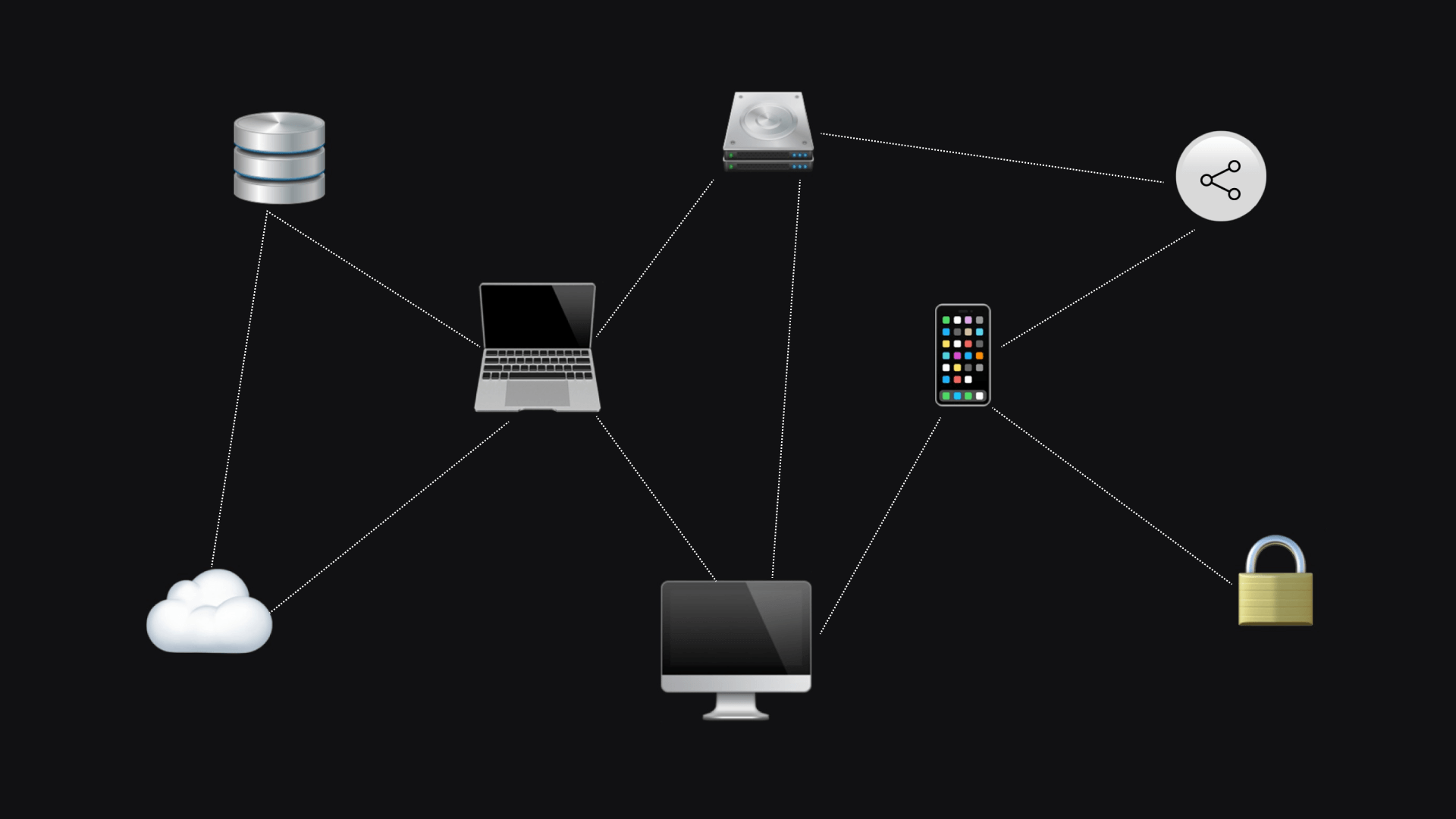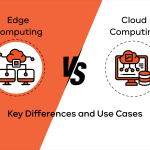Virtualization is the creation of a virtual copy of a physical computer. The benefits of virtualization are vast – it cuts hardware expenses, and increases the productivity and speed of operations.
However, that’s only a tiny part of the virtualization benefits that push businesses to introduce this technology into the work cycle. According to Statista, these days, 92% of businesses apply virtualization in their operations, and this is a rising trend.
Based on recent statistics, the virtualization market is growing. The market reached a record of 15.9 billion dollars in 2020 and this figure is still increasing.
As demand staggers, the advantages of virtualization drive more attention. As a result, more businesses ask a simple question: is it worth bothering with virtualization technology?
You’ll also learn:
Let’s start directly with the service explanation.
What is Virtualization?: Basics Explained
Basically, virtualization is the creation of a digital file on your computer that looks and performs as if it is a different piece of hardware. In simpler terms, it is a virtual copy of a physical computer.
Why would you need this?
For example, let’s say that you own a Windows PC, but want to work on Mac OS. You can create a virtual version of a Mac on your Windows PC without having to buy a MacBook.
This life hack can save small businesses from spending big on hardware and add flexibility to their operations. This enables one of the main benefits of virtualization – cost savings.
Besides, a virtual machine lets you quickly switch between different operating systems. Here, you get another virtualization benefit: agility and independence.
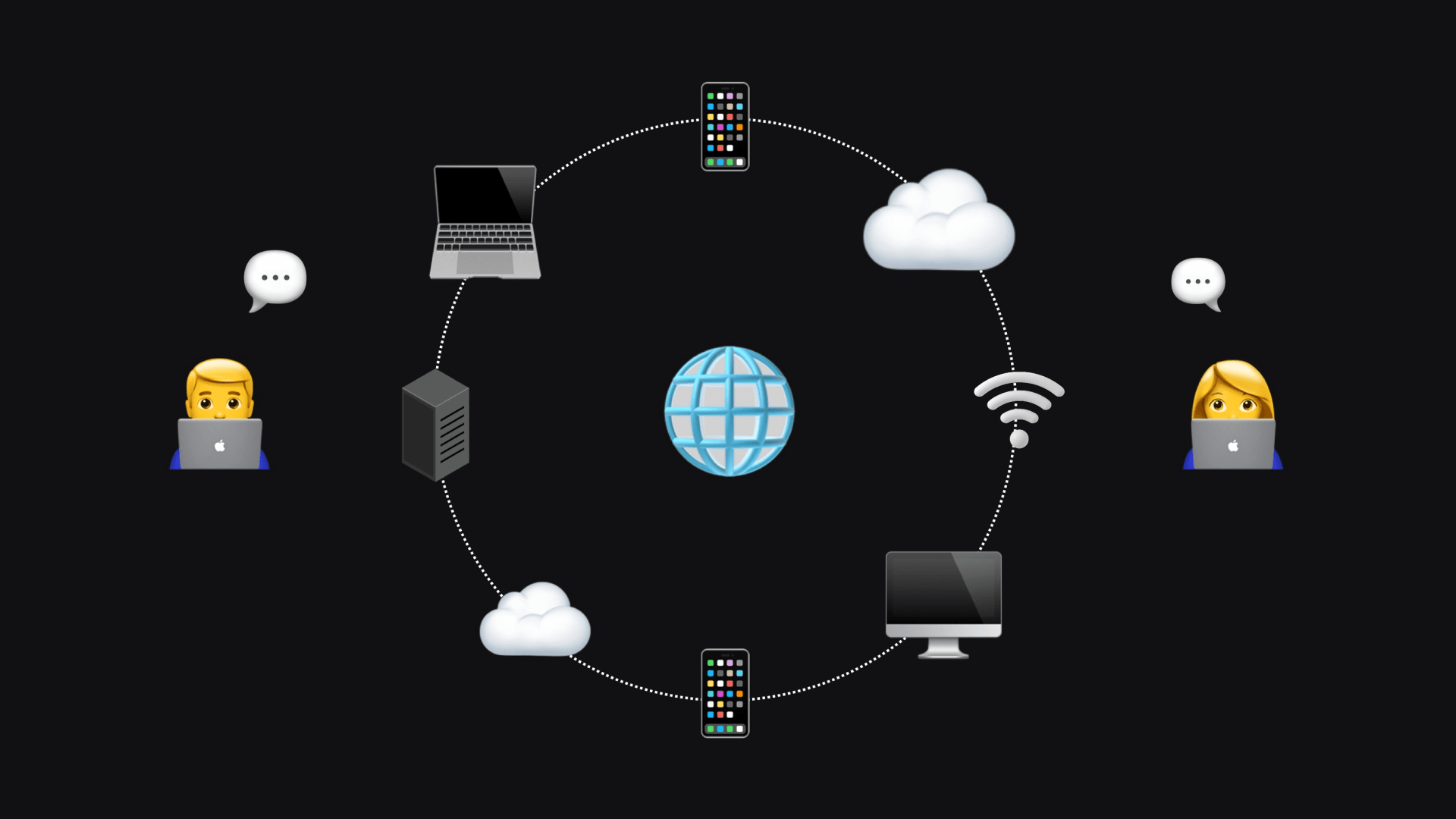
Are you interested in virtualization services for your business?
Our team can help you with the proper application of virtualization in your organization. Get in touch and receive a free consultation and tech expertise, more success stories, and answers to all your questions.
What is a Hypervisor?
If you want to make a profit from the benefits of virtualization, learn the basics. The first thing to learn about is a hypervisor.
As we’ve mentioned, virtualization allows for a fast switch between different operating systems.
To make this switch possible, a system needs a hypervisor. This is a thin layer of software that allows one physical computer to run different operating systems alongside each other.
Hypervisor works as a traffic guard that assigns each operational system its place in the storage and portion of power.
This simple tool has allowed businesses to profit significantly from the benefits of virtualization. From there, the sphere of application for virtual machines grew.
Types of Virtualization & Use Cases
Today, the uses of virtualization machines have gone far beyond the beaten path. People virtualize software, hardware, servers, desktops, storage, networks, and more.
Each of these uses expands the advantages of virtualization.
Here are several of the most frequently used service types for virtualization machines:
1. Network virtualization
This is a virtual reproduction of a physical network including all details: with routers, firewalls, VPNs, switches, and logical ports.
Use cases: Imagine that your team needs an additional, separate network for a task that requires extra resources. Network virtualization allows you to perform network-related tasks independently of the hardware.
The advantages of virtualization for networks are vast. These networks have higher operational speed, cost-savings, flexibility, and agility. They also explain the growing interest in this technology.
As of now, 14% of businesses are using virtual networks – and this trend continues to rise. According to statistics, the adoption of network virtualization services is projected to grow in the coming years.
2. Server virtualization
Virtualization benefits here are even more impressive. A virtual server allows not just two, but multiple operating systems to run on one computer and remain highly efficient. The server virtualization market is worth 6 billion US dollars today, but is projected to grow to 8 billion dollars by 2027, Statista states.
Use cases: Server virtualization is applicable when you have to perform software on different servers.
So, what are the advantages of server virtualization? First, its faster performance and workload deployment. Server virtualization also provides higher server availability.
3. Desktop virtualization
This helps when you need to work on different projects simultaneously, alongside one another. This process allows you to create virtual copies of your desktop.
Use cases: Virtualization of desktops is most often deployed for offshore teams. The process helps managers quickly set up reliable workspaces. This technology allows you to set up a Windows OS (or another operating system) on an iOS or Android tablet, for example. One of the main benefits of virtualization, in this case, is the faster organization of remote work.
Interestingly, virtualizing desktops is turning into a separate business niche. By the end of 2021, the Desktop-as-a-service, or DaaS, market is expected to reach 2 billion dollars in worth (Statista, 2021).
4. Hardware virtualization
Hardware virtualization is a broad notion; it includes the virtualization of computers, their components, or whole hardware platforms.
Use cases: The benefits of virtualization in the domain of hardware are lower maintenance costs and greater flexibility. For example, to prepare a complex demonstration of some software, a sales manager can use a virtual PC. They can join a virtual PC with the software mentioned from their laptop. There is no need to install any programs.
The ease of relocation tops the list of advantages of virtualization for hardware. You can transport a VM from one computer to another in a couple of clicks.
Aside from all of this, virtual machines are very helpful in disaster recovery scenarios, as they never go through any physical damage.
5. Software virtualization
Software virtualization resembles actual software. However, you don’t have to install it on your computer, but instead on a virtual machine.
Use cases: Programmers use software virtualization for software testing. One of the leading virtualization benefits for software is security. The process allows you to keep different versions of your software in other places. Thus, you protect yourself from data loss.
6. Storage virtualization
Storage virtualization is the process of copying the properties of one or several physical storage disks. In this case, a server doesn’t see the difference between virtual and physical storage.
Use cases: The best example of storage virtualization is LUN (logical unit number). Most often, programmers use this to add or delete storage without affecting running applications.
Virtualization benefits for storage are vast. Storage virtualization streamlines data storage and migration, and raises the scalability of storage properties.
Virtual Machines: Main Properties that Provide Virtualization Benefits
You cannot profit from the benefits of virtual machines if you don’t know their main properties. They are:
- Partitioning – virtualization allows one physical computer to run different operating systems. At the same time, the machine divides its memory and power according to the needs of these systems.
- Isolation –the virtual machine runs isolated from the physical computer. In the instance of hardware malfunction, the virtual machines preserve performance. This enables one of the main benefits of virtualization: fast disaster recovery. This also raises data security.
- Encapsulation – a virtual machine can be saved to physical hardware as a simple file. This allows users to copy or move it to different storage. This also allows for many advantages of virtualization. Faster provisioning and greater agility are just the first ones that come to mind.
- Independence – a user can transfer a virtual machine to any physical server. This caters to greater business continuity.
These properties guarantee the vast advantages of virtual machines, which we will cover further.
Now that you know more about the main components of virtualization, let’s learn about the benefits of virtualization in terms of cost and time savings.
10 Vivid Benefits of Virtualization
Virtualized services help businesses scale faster and be more flexible.
1. Cut Your IT Expenses
Lower spending is one of the main virtualization benefits. When using virtualization technology, one physical server hosts many virtual machines. You can use these machines for different purposes. Half of business owners consider this point to be very important.
2. Eliminate Downtime & Improve Resiliency
The recovery time of a virtual machine is shorter compared to the repair of a physical server. 63% of business owners define this factor as critical. 31% say this is one of the most important benefits of virtualization, according to Statista.
In the event of a disaster, an operator can retrieve a file with all the VM data from a computer in minutes. This caters to business interoperability, trustworthiness, and resilience.
3. Improve Productivity, Efficiency, & Agility
This is one of the essential advantages of virtualization. Your team only has to maintain one server instead of several. This frees up time that you would otherwise spend on technical support. You can instead use this time to respond to changing environments and concentrate on critical tasks.
4. Monitor Independence and DevOps Delivery
Virtualization allows you to split a working environment into several virtual machines. Any developer can quickly switch from one VM to another to test an application or do another task.
Developers won’t need to request a new computer with the required operating system. Instead, they can complete their tasks. Thus, the independence of DevOps makes for another critical point in the list of the benefits of virtualization.
5. Faster Provisioning of Applications & Resources
With a VM, you are free from having to install hardware components. You don’t have to set up new machines, create networks, or perform similar tasks. You can do this all virtually. Thus, your team can get a new environment, storage section, or network in minutes.
6. Simplified Data Center Management
One of the key benefits of virtualization lies in the domain of data centers. To manage the latter more effectively, companies can organize additional spaces and build extra computer rooms to secure operations and use them as a disaster recovery center.
Additionally, virtualization eliminates the need for high-power supplies and cooling facilities for data centers.
7. Greater Business Continuity & Disaster Recovery
If a computer goes down unexpectedly, there is no better solution for data recovery than virtualization. A virtual machine is easy to move from one hypervisor to another on a different device in minutes. The expected uptime is 99.99%. This is the main factor that motivates people to develop a virtualization strategy.
8. Greater ROI
Among the other benefits of virtualization is the idea of getting a significant return on smaller investments. You had to spend a lot of money on setting up an on-site working environment and buying hardware in the past.
Now, you can just spend some time setting up a machine, purchasing a license (from Microsoft Azure or AWS), or just getting access for starters. According to Statista, enterprises spend just 9% of their IT budget on virtualization.
Aside from this small initial investment, the rest of the money you earn is yours. Add here that you are then able to dedicate more time to your business rather than setting up a new environment.
9. Enhanced Systems Security
According to a report on the annual number of data breaches in the US, the number of data exposures has grown from 2005 to 2020, reaching the peak in 2017.
However, the number of data leaks in 2020 still remained high. In the US alone, 155.8 million people suffered data leaks. The reason was almost always attributed to weak security.
Security enhancement is one of the most important benefits of virtualization.
Virtual firewalls give you the best of two worlds. First, they are isolated, like other virtual applications. Thus, VMs are safe from viruses and malicious attacks of different sorts. Second, they are cheaper and simpler to install, maintain, and update.
In terms of virtualization benefits, you get higher visibility of what’s going on both in virtual and physical environments. This enables faster provisioning of resources. You also react to adverse events more quickly.
10. Company Becomes Eco-Friendly in all Senses
Hardware maintenance is not just a matter of time and cost, but is also energy-consuming. Power supplies to informational technology offices have a strong climate impact. This impact can be reduced considerably thanks to the implementation of virtual machines. Thus, low-energy use belongs in the category of benefits of virtualization. Lower energy use brings profit to society in general.
The advantages of virtualization are obvious. It is no wonder more businesses are adopting virtualization solutions every year.
According to a Virtualization report, 29% of companies worldwide have started dabbling in virtualization. However, there is one curious thing: among the different benefits of virtualization, the most important one is stability.
In some cases, the disadvantages of virtualization are also a piece of the puzzle. For example, virtualization takes more time compared to the use of local systems.
As well, with time, you still may face scalability issues since you cannot grow endlessly. At some point, you will need to expand your hardware base.
Important Considerations Before Taking Advantage of Virtualization
To make sure you get the best benefits of virtualization, you have to apply this technology wisely.
Therefore, there are important considerations to take into account when implementing virtualization into your business.
Best Time to Benefit from Virtualization for Small Businesses
The best time for virtualization is when you want to expand your business. The benefits of virtualization will help you cut costs on hardware upgrades.
If you have just one or two servers, but the business is growing, use a VM for administrative tasks. These include promotions, migrations, patching, etc. Thus, you can grow without seeking investment.
Virtual Machines: Security Explained
Best security practices, applicable to physical machines, also work well with virtual machines. You may use firewalls and anti-virus software.
Additionally, virtual machines work isolated from the physical environment. This provides an extra security layer.
Thus, heightened security is one of the most important benefits of virtualization. This will help you test malicious software on a virtual machine.
Number of Virtual Machines per Single Server
The number of VMs per server is limited by server capacity. This is not a benefit of virtualization, but nevertheless an important factor to know.
The number of virtual machines per server depends on several factors. These factors are RAM, storage capacity, and other resources since different servers vary. Aside from these, the tasks performed on a VM need more power output and storage capacities.
A server with 64g RAM can store a higher number of machines compared to 34g.
However, suppose a machine needs a lot of memory (for running databases, for example). In this case, the needs could include the need for a separate server.
So, how can you get the most from the benefits of virtualization?
You should know the exact capacity of your physical server. This should correspond to a load of tasks performed by a virtual machine.
When choosing a team for virtualization services, consider other important factors:
- Advanced security features
- Cost of maintenance
- Technical support
- Ease of using third party integrations
- Automation
Pay attention to these features to get the most of the benefits of virtualization technology. Big and small businesses need to move for more visibility on their sales, resources, trends, revenues, prospects, and customers. To run and manage a business effectively, a business owner relies on fresh-hot data available through cloud CRMs, ERPs, etc.
The best cloud computing examples for business processes are Salesforce, Microsoft Dynamics, Hubspot.
How Your Business Can Benefit from Virtualization
Now you know all the technical and organizational benefits of virtualization. You’ve viewed the essential considerations, too. Now is the best time to learn how this all affects your business.
We would be happy to explain the business benefits of virtualization, including how:
- Virtualization promotes small IT businesses
These days, many services start a small business without huge expenses. Basically, any average person with knowledge in information technology can start a business. You don’t need considerable investment. This is one of the main virtualization benefits for businesses.
- Your business develops faster
Virtualization makes provisioning and setting up new machines faster. This lets you grow, change, and stay flexible to accommodate the changing needs of your clients. This is one of the main virtualization advantages for your business.
- You have a higher ROI
With virtualization, you only need smaller investments to get bigger returns.
- Your business has a lesser impact on the climate
Compared to the utilization of several machines, you need lower energy supplies and fewer cooling systems for your data center.
- Virtualization helps you go offshore
This is one of the main advantages of virtualization for growing businesses. You can access virtual machines from anywhere in the world. This lets you easily manage offshore teams and streamline provisioning remotely. You can set up a VM with a Windows OS on any device. This includes even an Android tablet. Your team members can perform a task even before being provided with a physical device.
- Virtualization makes your business more flexible
This fact is especially important for companies at the enterprise level, as they are constant clients of virtualization services. According to statistics, big companies are more likely to use the benefits of virtualization. These benefits give them more flexibility and agility with virtualized servers.
By now, you have hopefully considered all the general benefits of virtualization. Interested in the advantages of virtualization that might work best with your business?
To test this service in real life, book a consultation with a proficient IT team.
How might the benefits of virtualization impact your business?
For seamless migration to virtualization services, you need a proficient consultant. IT Magic is an expert in virtualization and DevOps services. We can craft a solution to allow you to make the best of the benefits of virtualization and get ready to take your business to the next level.
